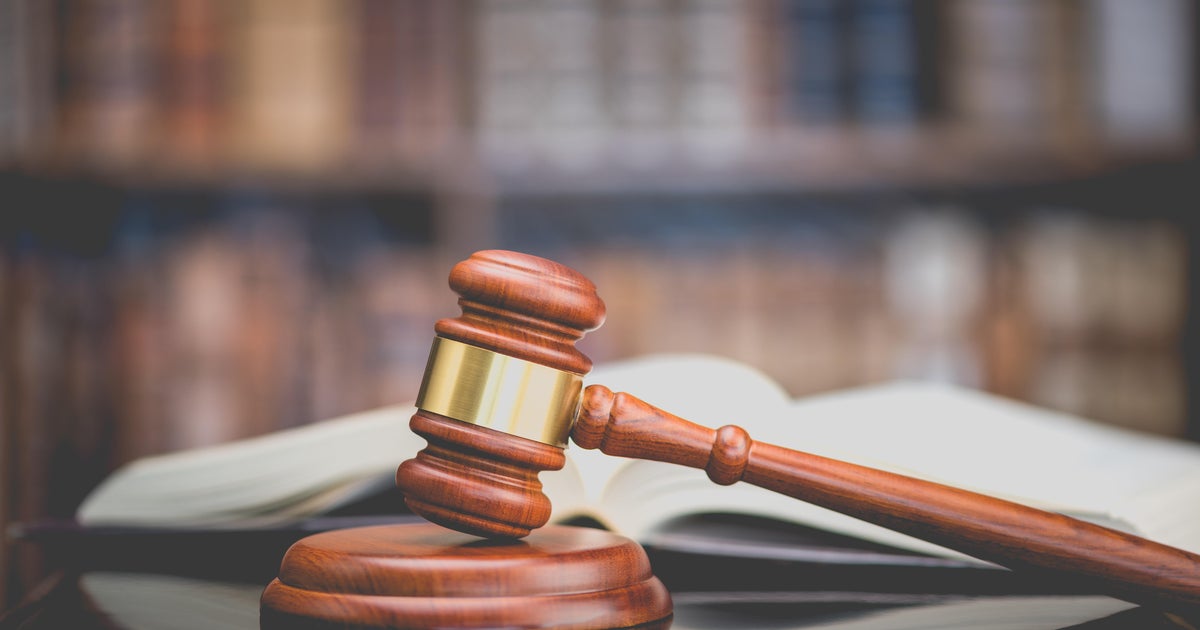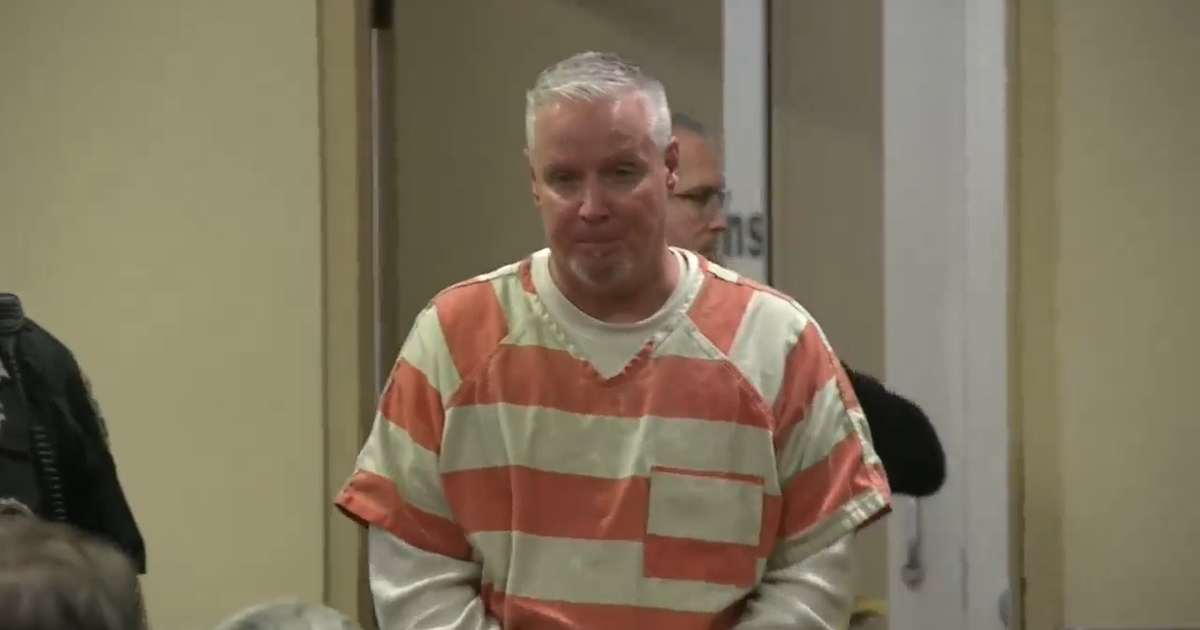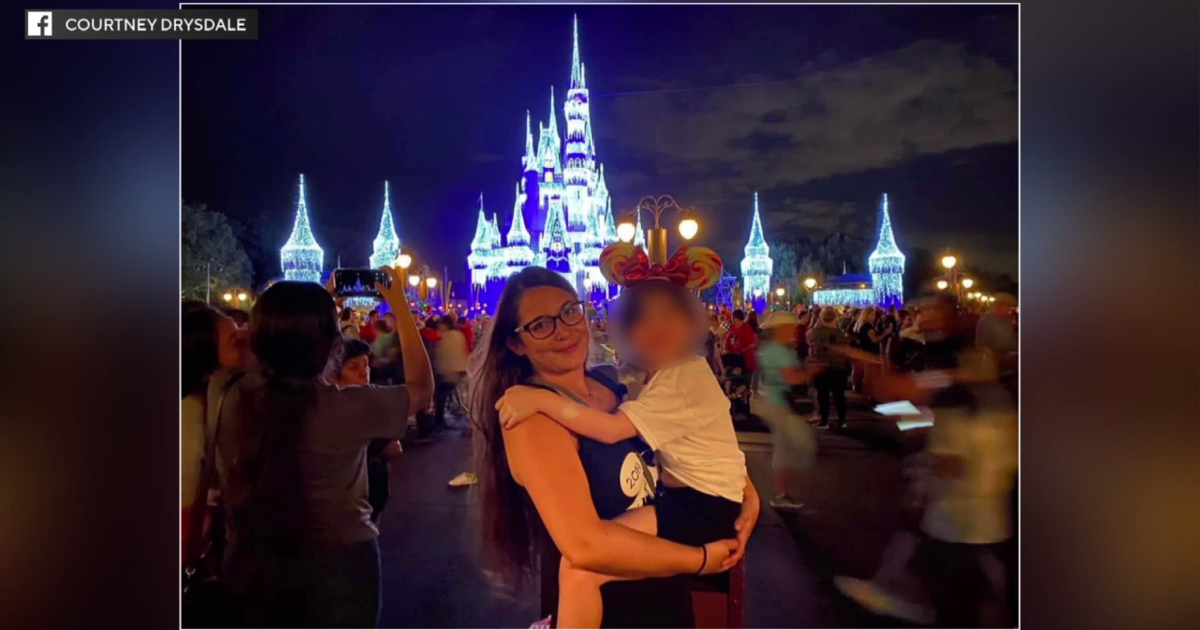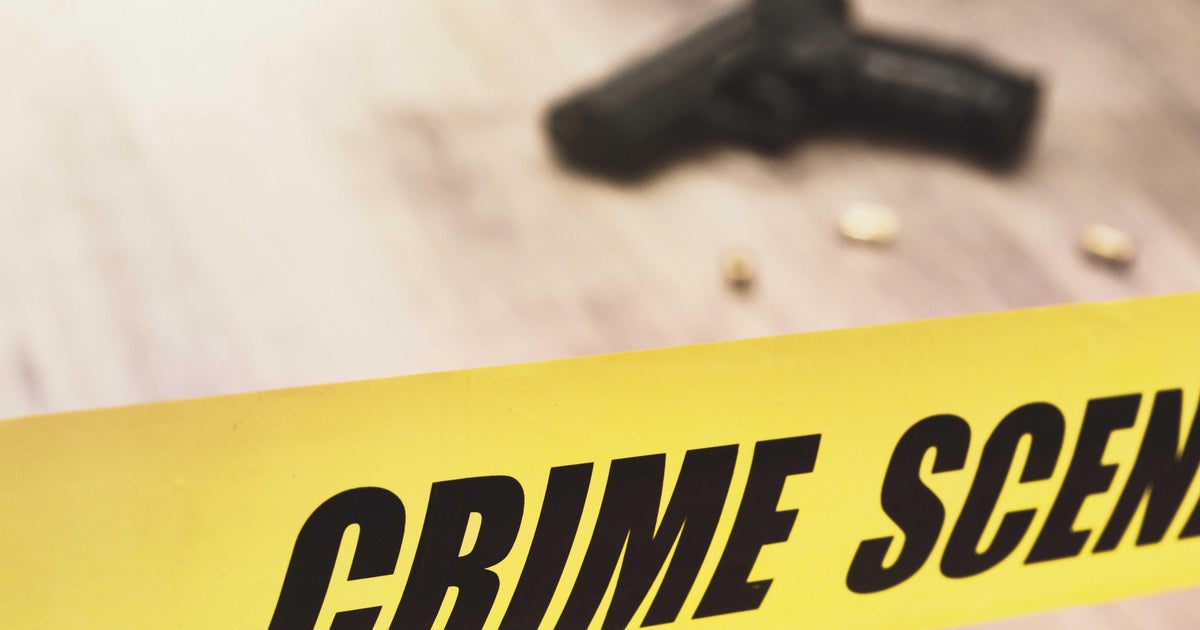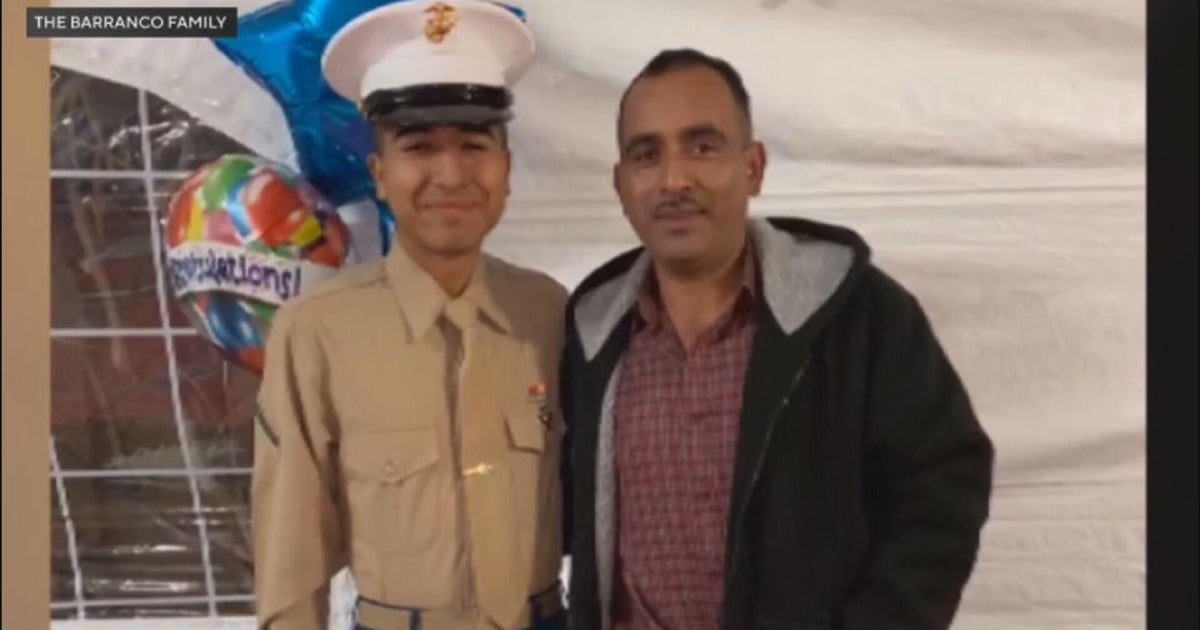Prosecutors Could Rest Case Against Blagojevich On Thursday
Updated 05/18/11 - 6:49 p.m.
CHICAGO (CBS) -- Federal prosecutors have said they expect to rest their case against former Gov. Rod Blagojevich on Thursday, and the defense team has been told to be ready to begin presenting its case on Monday.
The government has significantly streamlined its case against Blagojevich for the retrial and, if prosecutors finish as expected on Thursday, would wrap up their case in three weeks – half the time it took them to present their case the first time.
Assistant U.S. Atty. Reid Schar said prosecutors expect to call three or four witnesses to the stand on Thursday, lasting just a few hours altogether.
In all, the prosecution will have called 15 witnesses to the stand for Blagojevich's retrial. At the first trial, prosecutors called 31 witnesses in six weeks.
Prosecutors decided to simplify their case against Blagojevich after jurors at the first trial deadlocked on 23 of 24 counts, convicting Blagojevich only of a lone count of lying to the FBI. Prosecutors also dropped three complex charges of racketeering and wire fraud, leaving 20 counts against Blagojevich at his retrial.
Defense attorneys have yet to say what their plan is when it's their turn to present their case. At the last trial, Blagojevich's attorneys did not call any witnesses, nor did Blagojevich testify himself.
Harsh Words For Defense
Meantime, U.S. District Judge James Zagel gave his most pointed admonishment yet to defense attorney Sheldon Sorosky, for continuing to make arguments in the form of questions during cross-examinations.
Zagel has sustained scores of objections from prosecutors for asking questions he has ruled out of bounds.
Clearly exasperated that the defense has continued to flout his rulings, Zagel called Sorosky's tactics on Wednesday "an abusive examination."
While questioning Blagojevich's longtime friend Alonzo "Lon" Monk earlier in the day, Sorosky was asking about Blagojevich's alleged shakedown of a road building executive for campaign cash in exchange for a major tollway expansion project.
Monk had testified that Blagojevich told road builder Gerald Krozel that he was holding off on approving a $6 billion tollway plan because he wanted to see if the state legislature would first pass a much more expansive capital construction bill. Sorosky wanted to know if House Speaker Mike Madigan was the only thing blocking the capital bill from becoming reality.
Prosecutors contend that what lawmakers were doing about the capital bill didn't matter; the only thing that did matter was whether Blagojevich was trying to get money from Krozel in exchange for the tollway plan.
"These questions can't continue to go on," Assistant U.S. Atty. Reid Schar said.
"The questions are not evidence," Schar added. "Some members of this jury may think because Mr. Sorosky … makes an argument through a question, it's meaningful. … I think it has gone on long enough and it's really got to stop."
Schar also said that the defense's repeated tactic of making arguments in the form of questions leaves them with two choices, neither of them good: either interrupt the defense before they can finish a question – which he thinks is a breach of etiquette – or let them get the full question in and risk having the jury believe an inappropriate question is significant.
Zagel agreed.
"The problem is, what the government fears, is that somehow the jury will think that these are facts … and we should consider them even though the judge said we couldn't," Zagel said.
The judge agreed to remind the jury that the attorneys' questions are not evidence and, if he sustains an objection to a specific question, the jury must disregard it altogether and not speculate as to what the answer might have been.
Zagel also warned the defense that he will cut off their examination of witnesses if they continue to repeatedly ignore his rulings.
"I will, in fact, end an examination," he said. But, to avoid embarrassing the defense team, "If I have to sit a lawyer down, I will excuse the jury and then sit the lawyer down. The jury will simply believe that the lawyer finished their examination."
Defense Paints Monk As A Liar
Blagojevich's defense team spent much of the day Wednesday depicting Monk as a liar who betrayed the trust of a close friend. Monk was Blagojevich's law school roommate and an usher at his wedding, but is now cooperating with federal prosecutors in exchange for a plea deal.
"He betrayed me and it hurts to see him lie about me," Blagojevich said after court. "To see him do what he is doing to me and lie about me is something that hurts a great deal."
Monk ran Blagojevich's first run for governor in 2002, then became his chief of staff when he took office, even though he had no previous experience in politics.
Sorosky managed to point out that now retired Mayor Richard M. Daley endorsed Blagojevich in his early political career and that Blagojevich became a political success without Monk's help before the 2002 election.
"Basically, he hired you because he trusted you and you were his friend?" Sorosky asked. "He made you his chief of staff because he trusted you, did he not?"
"Yeah he trusted me," Monk said.
Sorosky also focused on Monk's admission on Tuesday that he accepted regular cash gifts of $10,000 from Blagojevich's top fundraiser, Antoin "Tony" Rezko in 2004, around the same time that they learned Rezko was under federal investigation.
Monk never told Blagojevich about the money from Rezko.
"You never said to your good friend Rod, 'Hey Rod, I made a bit of a score, could I give you a few thousand?' You never said that to him, did you?" Sorosky asked, prompting another objection.
Monk conceded he never told Blagojevich about the money, but insisted it was because Blagojevich would have been worried about the gifts prompting an investigation.
"He wouldn't approve of the method in which I was getting the money," Monk said.
Sorosky also emphasized that Monk never reported the cash gifts on his income taxes, nor did he tell federal investigators about the cash when he was interviewed by the FBI in 2005.
Monk also conceded that he likely was still getting cash from Rezko at the time of the FBI interview, and possibly even afterward.
Sorosky later confronted Monk with his grand jury testimony about the cash from Rezko, in which he testified that he understood the money from Rezko was a gift. But at Blagojevich's first trial, Monk testified that he thought of the cash as an advance on salary from Rezko, who he planned on working for at some point.
"So, let's get this straight. One time, you testified under oath that it was a gift … and a second time" Sorosky started to ask before prosecutors interrupted with an objection, which Zagel sustained.
But Sorosky tried again.
"So, one time, you testified it was a gift and a second time you testified it was an advance in salary?" he asked, drawing an admonishment from the judge.
"Mr. Sorosky, you just like ran over the sustained objection. This is something that you can stand up and point out to the jury" in closing arguments, Zagel said.
Sorosky tried to ask the same question one more time, prompting Zagel to send the jury out of the courtroom to warn Sorosky again not to make arguments in the form of questions.
"You can say it in argument later," Zagel said. "This is the time to ask questions."
"I thought maybe I wasn't clear, which is why we had this recess, so you understand," he added.
Monk has also admitted misleading both Blagojevich and racetrack owner John Johnston in conversations he had with each of them about getting a $100,000 campaign contribution from Johnston.
He conceded Tuesday that he lied to Blagojevich about how aggressive he was being with Johnston about his efforts to get campaign cash and, on Wednesday, admitted he also lied to Blagojevich about giving Johnston a deadline to make the contribution.
Sorosky also asked if Monk lied to Johnston when he told the racetrack owner in one conversation that he had talked to Blagojevich the night before about legislation Johnston was seeking to require Illinois casinos to pay subsidies to the horse racing industry. Monk conceded he had.
He's also admitted lying to Blagojevich about taking a trip to Oklahoma in December 2008 to take his father to an Army reunion, when he was actually going to the Dominican Republic for a golfing trip.
"You told all those lies to benefit yourself, didn't you?" Sorosky asked. Monk said yes.
Racetrack Owner Takes The Stand
Later Wednesday afternoon, John Johnston took the stand to testify about Blagojevich's alleged attempt to squeeze him for a $100,000 campaign contribution in exchange for signing the racetrack legislation.
Johnston testified that, after lawmakers signed off on the racetrack legislation on Nov. 20, 2008, then sent it to the governor four days later, he wanted Blagojevich to sign it "as soon as possible."
He explained that the legislation would have provided $9,000 in revenue a day for his family's two racetracks, Maywood Park and Balmoral Park and, every day the bill went unsigned, they were losing out on that revenue.
According to Johnston, on Dec. 3, 2008, he met with Monk, his lobbyist, at the Maywood Park racetrack, after Monk had called him from the governor's campaign office.
They met briefly with Johnston's father, Billy Johnston, to discuss the racetrack legislation, but after a few minutes, Monk left and motioned to him to speak in private, Johnston said.
Johnston said Monk told him that Blagojevich had said "he's concerned if he signs the racetrack legislation, you (Johnston) might not be forthcoming with a contribution."
But Johnston told Monk that "the concept of a contribution at this point is totally inappropriate."
According to Johnston, Monk then said, "different subject matter, I need for you to get in a contribution by the end of the year."
"At that point, I felt very uncomfortable," Monk added, saying that he cut off the conversation at that point. "Just because he said didn't subject matter, clearly didn't make it so."
Schar asked Johnston what he understood Monk had been telling him.
"The governor was very interested in getting a contribution in as part of the bill signing and I was very uncomfortable with that," Johnston said.
He added that, because of what Monk said, he feared that, if he didn't make a contribution to Blagojevich, "there would be, at minimum a delay in the bill signing and, possibly, no signature at all."
Todd Feurer, CBS 2 Web Producer
